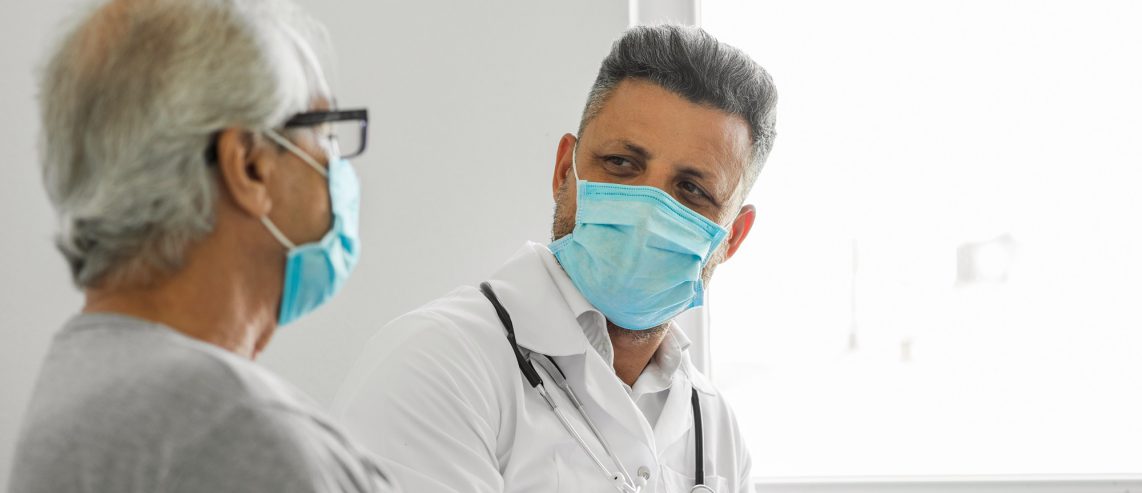Most people suffer from hiccups now and then. It’s usually a short-term, minor problem that’s more annoying than dangerous.
But when hiccups don’t go away in a few hours, they can be uncomfortable or even painful. If you have hiccups for two days or more, it might indicate a more serious problem.
Here’s what you need to know about hiccups, and when you should seek medical help.
What Are Hiccups?
Hiccups happen when the diaphragm (the muscle that separates your chest from your abdomen) suddenly spasms. Then the epiglottis (the flap of tissue that closes the windpipe when you swallow) quickly closes. You feel a little jerk in your chest and hear the characteristic “hic” sound.
Everyone gets hiccups now and then. “Hiccups affect everyone, even a growing baby! Hiccups may be a programmed exercise for babies in the womb to help develop their breathing muscles,” says Jonathan Weiss, MD, of Renaissance Family Practice-UPMC. Doctors don’t know why, but men get hiccups more often than women.
Doctors classify hiccups by how long they last.
- Acute hiccups last less than 48 hours.
- Persistent hiccups last more than 48 hours, but less than a month.
- Intractable hiccups last longer than a month.
Never Miss a Beat!
Subscribe to Our HealthBeat Newsletter!
Thank you for subscribing!
You can now select the specific newsletters you'd like to receive.
You are already subscribed.
Subscribe to more newsletters in our email preference center.
Sorry, an error occurred. Please try again later.
Get Healthy Tips Sent to Your Phone!
Are Hiccups Dangerous?
In and of themselves, hiccups usually aren’t dangerous. But hiccups that last longer than a few days can cause real discomfort and anxiety. They can interfere with your sleep and your ability to eat normally.
Persistent or intractable hiccups require medical attention. They may be a signal that something else is wrong with your body.
What Causes Hiccups?
Anything that disrupts or irritates the nerves of the diaphragm can cause hiccups.
The cause of acute hiccups is usually different from persistent or intractable hiccups. But doctors don’t always know what causes hiccups.
Acute hiccups
Acute hiccups are often caused by something you eat or drink. Sometimes strong emotions seem to trigger hiccups. Typical causes of acute hiccups include:
- Eating too much, too fast.
- Eating a big meal close to bedtime.
- Feeling nervous, stressed, or excited.
- Drinking alcohol, caffeine, or carbonated drinks.
- Eating too many hot, spicy foods.
- Being pregnant.
- Drinking something hot followed by something very cold.
- Chewing gum, especially nicotine gum.
- Smoking cigarettes.
- Breathing in noxious fumes.
Persistent or intractable hiccups
These chronic hiccups, while rare, are usually a symptom of some other disorder or disease. They happen when something interferes with the nerves that control the diaphragm.
Here are some conditions that could trigger persistent or intractable hiccups.
- Surgery — especially surgery near the diaphragm.
- Pleurisy — inflammation of the membranes around the lungs and the top of the diaphragm.
- Medications — such as epilepsy medicine and chemotherapy for cancer. Hiccups may also be a side effect of steroids, anti-nausea medications, and antibiotics.
- Diseases — liver or kidney disorders, intestinal disease, pneumonia, bowel disease, or pancreatitis may irritate the diaphragm.
- Nerve or brain trauma — such injury, stroke, or tumor. This can disrupt the part of the nervous system that controls the diaphragm.
Persistent or intractable hiccups can interrupt sleep and contribute to abnormal weight loss. Someone with chronic hiccups may feel continually exhausted. These hiccups can also interfere with your ability to communicate, make you feel depressed, and increase anxiety levels.
Treatment for Hiccups
Acute hiccups almost always go away on their own. Or, you can try the following home remedies. These aren’t scientifically proven, but they won’t hurt you.
- Breathe slowly into a paper bag.
- Fold your knees to your chest and lean forward.
- Sip icy water or chew on a piece of ice.
- Swallow a teaspoon of sugar.
- Bite on a lemon.
- Take tiny sips of vinegar.
- Hold your breath and count to 10.
- Gargle with cold water.
- Splash cold water on your face.
- Focus on something else. Take a walk , watch a favorite show, or read a book.
When You Should See a Doctor for Hiccups
If hiccups last longer than two days or interfere with your ability to sleep or eat, you should see a doctor. They will do a physical exam and ask questions like:
- Do you get hiccups easily?
- How long do your episodes of hiccups last?
- Did you recently eat hot or spicy foods?
- Did you recently drink something carbonated?
- Were you recently exposed to any toxic fumes?
- What methods have you tried to get rid of the hiccups?
- What has worked to get rid of hiccups in the past?
- Do your hiccups stop for a while and then start up again?
- Do you have any other symptoms?
Your doctor may recommend some lifestyle changes if you are prone to frequent bouts of hiccups. Avoiding alcohol, caffeine, and carbonated drinks can help. Eating smaller meals at a slower pace can also help reduce hiccups.
Because chronic hiccups are often the result of another medical condition, your doctor may screen you for other medical problems. Treating the underlying problem should help get rid of the hiccups.
Testing for chronic hiccups
Your doctor may run some tests to find out if something is wrong with the nerves that control the diaphragm. Tests may include a chest x-ray, computerized tomography (CT), or magnetic resonance imaging (MRI). Your doctor may do an endoscopy, which involves running a thin tube with a tiny camera down your throat.
Treatment for chronic hiccups
If your doctor determines you have a condition that causes chronic hiccups, treating the initial problem may help. The treatment will depend on what is causing the hiccups.
Your doctor may change the dosage of any drug you take if they suspect that your hiccups are a side effect of that drug.
Certain drugs may help get rid of chronic hiccups. One of the drugs doctors typically use to treat chronic hiccups is chlorpromazine. In some cases, anti-spasmodic medicine can help calm the diaphragm.
In extreme cases when other treatments don’t work, your doctor may use a phrenic nerve block. It’s an anesthetic that numbs the nerve controlling the diaphragm.
It’s important to tell your doctor about any other symptoms you may be having along with hiccups. That will help them get to the root of the problem.
Sources
National Library of Medicine, Hiccups, Link
Genetic and Rare Diseases Information Center, Chronic Hiccups, Link
American Cancer Society, Hiccups and Heartburn, Link
Kidshealth.org, What Causes Hiccups? Link
NHS, Hiccups, Link
National Organization for Rare Diseases, Hiccups, Chronic, Link
National Library of Medicine, Singultus, Link
About Primary Care
The relationship with a patient and their primary care doctor can be extremely valuable, and that’s what you get with UPMC Primary Care. When you work with a primary care physician (PCP), you develop a lasting relationship. Your doctor will get to know you and your history and can plan your treatments accordingly. Our PCPs offer a variety of services, including preventive care and treatment for both urgent and chronic conditions. With dozens of UPMC Primary Care locations across our network of care, you can find a PCP close to you. Schedule an appointment today.

